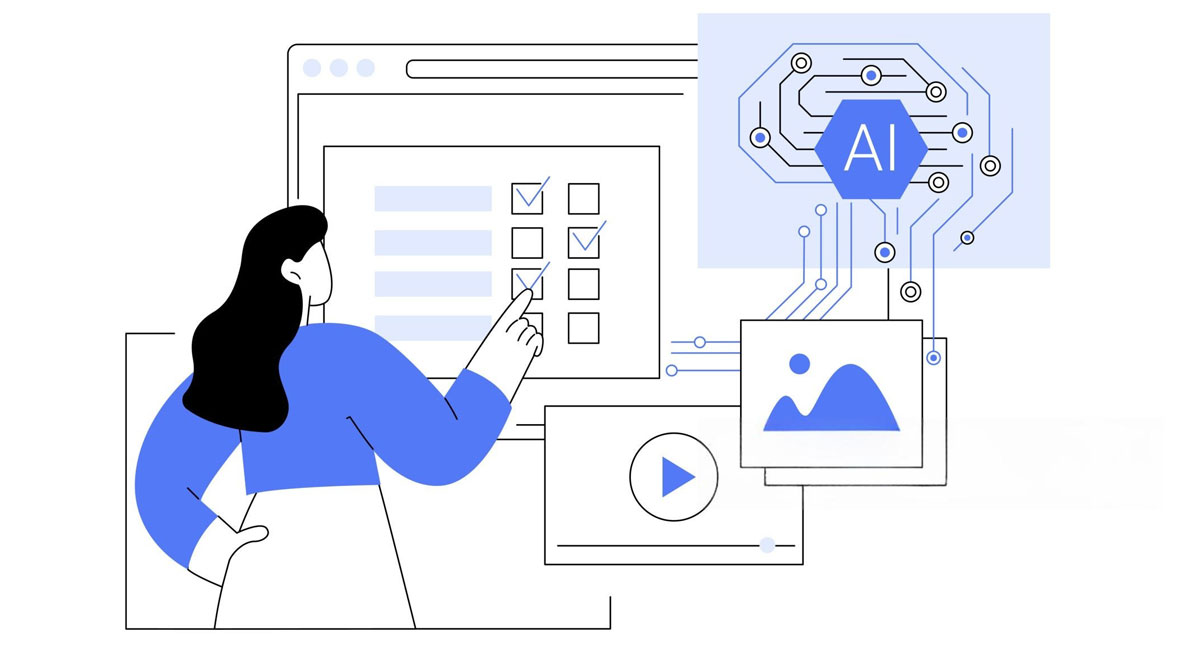Law Firm Cybersecurity Best Practices: Protecting Client Data, Compliance, and Peace of Mind

At ALT Consulting, we believe peace of mind is built on protection. In today’s digital legal environment, law firm cybersecurity is no longer optional; it’s a professional duty. Law firms store some of the most sensitive client data, making them prime targets for ransomware, phishing, and data theft attacks. This is why we pair cybersecurity solutions with a fast, insurer-friendly security assessment to identify gaps early.
Data protection is a core component of law firm cybersecurity, requiring firms to secure sensitive client data, comply with data regulations such as GDPR and HIPAA, and implement robust measures to safeguard information across all systems. Key strategies for cybersecurity include regularly auditing systems, using secure collaboration tools, vetting third-party vendors, and complying with data protection regulations through documented controls and compliance.
Whether you’re a 5-person boutique or a 50-user practice, implementing law firm cybersecurity best practices is crucial for protecting your clients, maintaining trust, and meeting the modern compliance standards required of law firms. Effective cybersecurity for law firms involves a multi-layered approach, including technical safeguards, incident response planning, and continuous employee training delivered as part of managed security services.
Introduction to Law Firms and Cybersecurity
Law firms are prime targets for cyber criminals because they manage vast amounts of highly sensitive and confidential client data, including legal documents, financial records, and medical records. The nature of legal work means that law firms routinely handle information that, if exposed, could have serious consequences for clients and the firm’s reputation. As a result, implementing strong security measures is not just best practice—it’s essential for protecting client data and maintaining trust.
Modern law firms must adopt comprehensive cybersecurity practices, such as multi-factor authentication, to prevent unauthorized access and reduce the risk of data breaches. Strong technical safeguards include enabling Multi-Factor Authentication (MFA) for all systems and encrypting sensitive data with firm-wide Data Encryption standards. The Health Insurance Portability and Accountability Act (HIPAA) and the Accountability Act set strict standards for safeguarding protected health information (PHI), especially for firms handling health information or acting as business associates. Physical security measures should be established to protect sensitive documents and servers. By prioritizing security and regularly updating their practices, law firms can protect sensitive data, comply with legal obligations, and maintain client confidence in an increasingly digital world.

Why Cybersecurity for Law Firms Matters
Attackers no longer target only large firms. They are after law firms of every size, especially those that rely on email, cloud storage, or remote access. The ABA reports that nearly 30% of firms have experienced a data breach, and many never fully recover.
For small and midsize law firms, managing cybersecurity threats and staying compliant with evolving laws and regulations is extremely challenging. Limited IT resources and legacy systems pose a significant cybersecurity risk to small law firms. A single breach can result in data loss, downtime, malpractice exposure, and lost client confidence, which is why proactive network monitoring and management help catch issues before they escalate.

The Foundation: Law Firm Cybersecurity Best Practices
ALT Consulting assists firms in implementing a structured cybersecurity roadmap based on CIS Controls, NIST, and ABA guidelines. Establishing formal policies and procedures, regularly reviewing internal policies, and enforcing security policies are essential steps in building a comprehensive cybersecurity framework, backed by technology assessment, controls, and compliance.
Here are the core areas every firm should address:
-
Governance: Develop and maintain written policies and procedures, including regular reviews of internal policies and security policies, to ensure compliance and effective security governance and Information Security.
-
Technology: Use practice management software to support compliance, data security, and streamline security processes, validated through a periodic security assessment.
-
Access Controls: Implement strong passwords and two-factor authentication to protect sensitive data and prevent unauthorized access via firmwide identity and access management.
-
Data Encryption: Ensure data security and privacy by encrypting sensitive information both in transit and at rest, adhering to enforceable Data Encryption standards.
-
Training: Provide ongoing employee training on cybersecurity best practices and compliance requirements as part of cybersecurity training.
Want help implementing these cybersecurity controls across your firm?
Book a Consultation1. Multi-Factor Authentication (MFA)
Prevent over 99% of credential-based attacks by enforcing Multi-Factor Authentication (MFA) across Microsoft 365, Clio, NetDocuments, and all remote access tools, centrally managed through Identity & Access Management.
2. Endpoint Protection and Monitoring
Deploy AI-driven threat detection to identify ransomware and phishing activity before it spreads across your network. Pair with Firewall Management to reduce lateral movement and block malicious outbound traffic. Endpoint Protection tools help identify known vulnerabilities and monitor for suspicious activity, preventing breaches and supporting compliance efforts as part of Managed Security Services. Leverage secure network environments to bolster your security strategy.
3. Data Encryption
Encrypt sensitive client data both in transit and at rest. Data Encryption is especially important for electronic PHI and personal health information to ensure HIPAA compliance and protect sensitive data privacy and security. This includes laptops, email, and all case management systems.
4. Backup and Disaster Recovery
Maintain off-site, immutable backups with tested recovery procedures, enabling your firm to resume operations within hours, not days, under a documented Data Protection & Backup Plan and Disaster Recovery Planning.
5. Employee Security Training
Human error causes most breaches. Employee training should include education on security protocols to ensure staff understand and follow cybersecurity policies. Mandatory ongoing training should cover identifying phishing attempts, secure data handling, and the firm's security policies. Mandatory Cybersecurity Training should be provided to employees at least once a year to protect sensitive client information. Ongoing phishing simulations and training build awareness and resilience.
6. Secure Cloud Platforms
Ensure your cloud providers meet industry security standards. It is also crucial to secure communication channels when using cloud platforms to share sensitive information, as protected pathways help maintain HIPAA compliance and prevent unauthorized access. Law firms should vet third-party vendors to ensure they meet the same security standards as the firm itself. Platforms like Microsoft 365 and Clio offer advanced compliance and audit capabilities when properly configured and monitored via Network Monitoring & Management.
7. Regular Risk Assessments
Quarterly or annual cybersecurity risk assessments are formal processes that identify vulnerabilities before attackers do, keeping your firm compliant and insurable. Conducting a regular security assessment validates that security policies are effectively implemented across the firm. Law firms also play a role in advising clients on risk assessment and compliance strategies, helping covered entities understand and adhere to HIPAA privacy and security requirements.
Anti-Malware and Anti-Virus Solutions
Protecting client data from cyber threats begins with robust anti-spam and anti-malware solutions. Law firms should implement these tools across all devices and networks to detect and block malicious software before it can compromise sensitive information. Regular updates and scheduled scans are critical to ensure these solutions remain effective against evolving threats.
In addition to prevention, law firms need a comprehensive incident response plan to address security breaches swiftly and effectively. This plan should outline clear procedures for identifying, containing, and mitigating breaches, as well as notifying affected clients and restoring secure operations, supported by remote IT support for rapid containment and resolution. By proactively implementing anti-malware solutions and preparing for potential incidents, law firms can significantly reduce the risk of data breaches and demonstrate their commitment to protecting client data and sensitive information.

Incident Response Plan
A well-developed incident response plan is a cornerstone of any law firm’s cybersecurity strategy. This plan provides a step-by-step guide for responding to security breaches or other cyber incidents, ensuring that sensitive information and protected health information (PHI) are safeguarded even in the event of an attack. Key components include procedures for detecting and containing breaches, communicating with affected clients, and restoring access to critical systems using data protection and backup playbooks.
Law firms should regularly conduct tabletop exercises to test their incident response plan, ensuring that all team members understand their roles and responsibilities. This is especially important for covered entities under HIPAA and the Health Information Technology for Economic and Clinical Health (HITECH) Act, which have strict requirements for protecting health information. By preparing in advance and practicing their response, law firms can minimize the impact of a breach and maintain the trust of their clients.
Artificial Intelligence and Cybersecurity
Artificial intelligence (AI) is rapidly becoming a valuable asset in law firm cybersecurity. AI-powered tools can analyze network activity in real-time, quickly identifying suspicious behavior and potential threats, such as phishing attacks or ransomware. By leveraging AI, law firms can enhance their ability to protect client data and sensitive information, often detecting security breaches before they cause significant harm, especially when integrated into managed security services.
AI also supports compliance efforts by helping law firms identify and secure personally identifiable information and protected health information, ensuring adherence to regulations like HIPAA. In the event of a breach, AI can assist with incident response by rapidly analyzing the scope of the incident and recommending containment strategies. However, it’s crucial for law firms to properly configure and monitor AI systems to avoid introducing new risks. By incorporating artificial intelligence into their cybersecurity strategy, law firms can stay ahead of emerging threats and more effectively protect their clients’ data.

Ready to explore AI-powered cybersecurity for your law firm?
Talk to an ExpertLaw Firm Compliance: Staying Ahead of Regulation
Compliance frameworks are evolving rapidly. Today’s law firm compliance standards extend beyond good security hygiene—they’re often mandatory for cyber insurance, client contracts, and data-handling obligations. The American Bar Association provides guidance on compliance and cybersecurity best practices for law firms. Privacy policies are essential for law firms to meet regulatory and ethical obligations when handling sensitive client and healthcare information, formalized through controls and compliance, as well as Compliance and Regulatory Support.
Firms should evaluate their alignment with:
-
ABA Model Rule 1.6(c): Duty to safeguard client information.
-
NIST Cybersecurity Framework (CSF): Identify, Protect, Detect, Respond, Recover.
-
ISO 27001 / SOC 2 Readiness: For firms handling corporate or financial data.
-
HIPAA Compliance for Law Firms: Required when dealing with health care clients, health care providers, or medical records, and understanding the definition of a covered entity and HIPAA covered entity under HIPAA regulations.
A covered entity under HIPAA includes healthcare providers, health plans, and healthcare clearinghouses that transmit, receive, or maintain protected health information (PHI). A HIPAA covered entity specifically refers to those directly subject to HIPAA's privacy and security rules. Each has distinct responsibilities for safeguarding PHI and ensuring compliance with HIPAA's privacy, security, and breach notification requirements. Security rules are critical, and failure to meet disclosure requirements can result in significant penalties and legal consequences.
Law firms are structured businesses that must provide legal services to clients in compliance with these regulations. The U.S. Department of Health and Human Services (HHS) enforces HIPAA compliance, including privacy, security, and breach notification rules, and can investigate and penalize non-compliance. Failure to comply with HIPAA can result in civil penalties enforced by the Office for Civil Rights (OCR). Legal professionals are responsible for ensuring their firms meet these compliance frameworks and regulatory requirements, often verified during a security assessment.
Understanding law firm HIPAA compliance is especially important for firms in personal injury, employment, or healthcare law. HIPAA requires encryption, access controls, audit logs, and signed Business Associate Agreements (BAAs); even for attorneys acting as business associates.
HIPAA Compliance for Law Firms: Avoiding Hidden Liabilities
Many firms unknowingly handle protected health information (PHI) through discovery files, subpoenas, or client records. Without a proper law firm HIPAA compliance program, your firm could face significant regulatory and financial exposure. The HIPAA Privacy Rule requires consent from individuals before sharing their health information. It is essential to safeguard PHI and ensure that PHI is only used or disclosed for authorized HIPAA purposes, such as treatment, payment, and healthcare operations. Proper procedures for accessing PHI must be established and followed to comply with HIPAA regulations and prevent unauthorized access or breaches.
ALT Consulting helps law firms navigate HIPAA requirements with:
-
HIPAA risk assessments
-
Policy and procedure documentation
-
Developing and maintaining policies and procedures as part of the law firm's HIPAA compliance program
-
Secure email and file sharing setup
-
Microsoft 365 and Clio security configuration
-
Ongoing compliance reporting for insurers and clients under controls and compliance
Building a Culture of Security and Compliance
At the end of the day, technology alone isn’t enough. True cybersecurity is cultural. The most secure firms are those that:
-
View law firm cybersecurity as a business advantage, not a checkbox. Most attorneys focus on advising clients, but may neglect their own law firm's compliance responsibilities, which are essential for maintaining trust and meeting legal and ethical standards.
-
Train their teams continuously with targeted cybersecurity training
-
Partner with experts who understand both IT and the legal profession and can provide responsive remote IT support and helpdesk services.

Legal compliance is especially important for law firms that work with human services organizations, as these firms play a critical role in supporting healthcare and social support systems.
ALT Consulting specializes exclusively in law-firm technology, combining Support, Security, and Success in a unified experience that gives you total peace of mind.
Protect Your Clients, Protect Your Firm
If your firm has not conducted a cybersecurity or compliance review in the last year, now is the time. The threat landscape is evolving rapidly, and insurers, clients, and regulators expect evidence, not promises.
Schedule a free 15-minute consultation to discover how ALT Consulting helps law firms protect their data, maintain compliance, and operate with confidence.